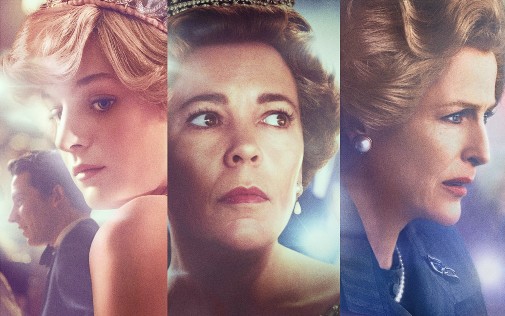
As a staunch antimonarchist and someone who despises Thatcher and her legacy, watching The Crown's fourth season was an oft-frustrating, sometimes fascinating, exercise. Peter Morgan and his team haven't shied away from looking at the dark side of British history and this latest series is no different. However, time constraints, an episodic structure, and attempts at historical ambivalence often result in a lackluster, superficial, occasionally rushed, experience.
Still, the production values are always immaculate, and the dramatization of the 80s features some of the best costumes the program has ever shown. Nevertheless, what always brings me back to The Crown isn't its analysis of politics, its melodrama, or pretty clothes. The show's greatest strength is its cast, with the actors excelling even when their material is lacking. When faced with some of the royal family's most tumultuous years, the performers upped their game and delivered a masterclass in screen acting…
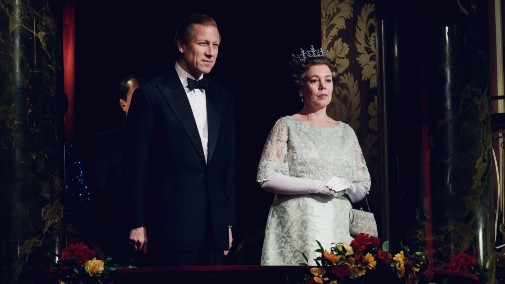
Starting with the returning cast from season three, one must pay respect to Olivia Colman's portrayal of Elizabeth II. While her take on the character hasn't been unanimously well-received, I confess myself a fan. There's an odd dynamic going on, between an affable screen presence and a character whose main personality trait is emotional distance. This creates an abrasive pressure that vibrates throughout the whole season, even though the Queen has almost been relegated to a supporting role.
As Prince Phillip, Tobias Menzies is more marginalized than ever in terms of narrative prominence, but the actor's an excellent supporting player. He also manages to make another one of Peter Morgan's symbolic Balmoral deers have some emotional weight to it, so there's that. As for the marriage of Phillip and Elizabeth, it feels as stable as it's ever been, with Colman and Menzies establishing a comfortable banter. Their chemistry is charming, lived-in, and it often brings needed levity to any given episode. Similarly, Helena Bonham Carter steals every scene she's in from the sidelines, cutting the palatial intrigue with acerbic wit and a good dose of snobbish realism.
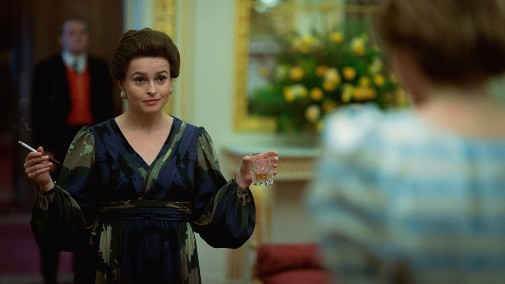
That being said, like in season three, Carter gets a chance to shine with one episode dedicated to her character. I confess that, unlike many, I was a bit baffled by the effusive praise the actress got f during the last Emmy season. Surprise of surprises, by the end of this ten-episode stretch, I'm ready to call Helena Bonham Carter the show's MVP. In the seventh hour, The Hereditary Principle, the actress gets to dismantle the layers of resentful despair that have calcified over the princess' soul, her good humor souring into marrow-deep anguish. When she proclaims her family's monstrosity, the words cut deep, and their impact is akin to a cannonball shot straight to the heart.
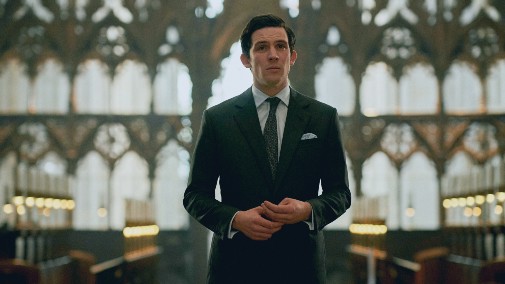
Those actors, along with Erin Doherty as Princess Anne, play the season as a continuation of their work last year. Josh O'Connor's Prince Charles is another matter altogether. If Morgan and company went to great pains to show the heir apparent's humanity before, making him a sympathetic, even pitiable, figure, this season sees an inversion of that dynamic. Charles' individualism has soured into mean-spirited resentment, a need for approval that twists him up into a repugnant monster. He's like a rabid dog, gone loony from an overdose of self-hatred, lashing out at anyone near.
Hunched over and talking as if he were holding a lemon between his lips, Josh O'Connor plays the character as a man shrinking before our eyes, his body shriveling alongside his heart. His Charles is so emotionally constipated one wonders how he doesn't keel over from all the accumulated pressure, a tension that manifests in nervous motion and brittle body language. There are still hints of the romantic royal, glimmers of light that only make the darkness feel all the more perverse. The Prince's glee at causing his wife's pain during a particularly nasty argument is a genius touch of actorly cruelty.
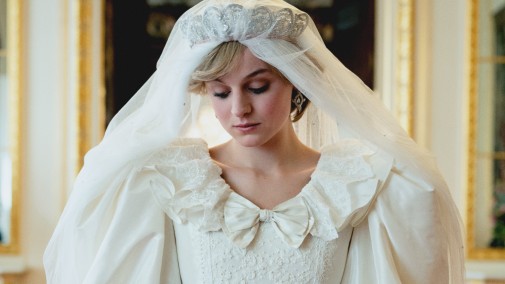
Speaking of his spouse, it's time we acknowledge the elephant in the room. Emma Corrin's a revelation as Diana, delivering a performance that goes beyond mimicry and reaches a spectral evocation of the historical figures' many faces. From episode to episode, she seems to be a different person, an inconsistent mutability that helps us understand how each character perceives the famous people's princess. When the episode is dedicated to her perspective, Corrin plays a wispy ghost, someone floating through life in a cloud of lead-like melancholy.
However, find her in a scene dominated by Charles' eyes and you get a very different picture of Diana. There's an egomaniacal sheen to her eye when looking at images of herself, a jubilant appreciation of her own charisma that's tacky, if not sickening. In a moment of vitreous stares and no self-awareness, Corrin plays the Diana her husband might have seen, the woman he married and grew to despise. Instead of pinning the historical figure down, Corrin and Morgan devised Diana as a collection of masks, a character made of a kaleidoscopic variety of images, some beautiful, others ugly. Whatever side of the argument you fall on, she'll break your heart, that's for sure.
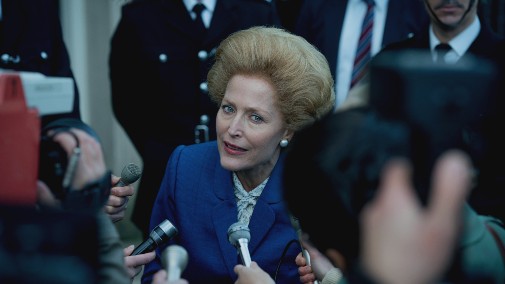
From an impressionistic rendering of a princess long gone, we go to an expressionistic caricature of a much-hated Prime-Minister. Rather than trying to humanize Thatcher, as the text sometimes does, Gillian Anderson has decided to play the politician as performance inside a performance, commenting on the woman's odiousness while playing to the rafters. Thatcher's husky voice, a trained affectation, has been turned to eleven, with Anderson sounding like she's going through a decade-long asthma attack.
Such words may sound like a negative critique, but such conclusions would be erroneous. In fact, I adored this Gorgon-like transfiguration of Thatcher. If nothing else, the myriad of ways the actress finds to say "Your Majesty" is astounding, a technical challenge resolved with show-stopping showboating antics. Still, in the last episode, the actress takes her take on Thatcher to a whole other level, showing the artifice crumble under pressure. By this point, we've seen the tears of Maggie before, but this time around, her despair is full-bodied. As power slips away, she becomes a gargoyle with bulging eyes and a vocal cadence dancing on the precipice of panic.
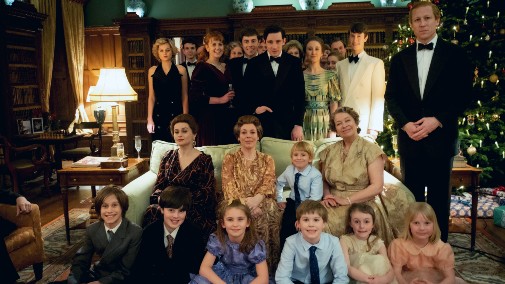
I'd bet both Corrin and Anderson make an appearance at next year's Emmys, though it's difficult to tell if the other actors, apart from Colman, will follow suit. Their work certainly merits golden accolades, as do the one-episode players who make the most out of little screentime. Tom Brooke is astounding as Michael Fagan, the man who broke into the Queen's room in 1982, and Tom Burke delights as a charismatic gay seminary student and trusted confidant of Princess Margaret. Claire Foy even makes an appearance in the eighth episode, reciting a speech that bookends the hour about Thatcher's reluctance to condemn the apartheid regime. Her cameo isn't likely to result in much prize-winning, but stranger things have happened.
The Crown's fourth season is available on Netflix.